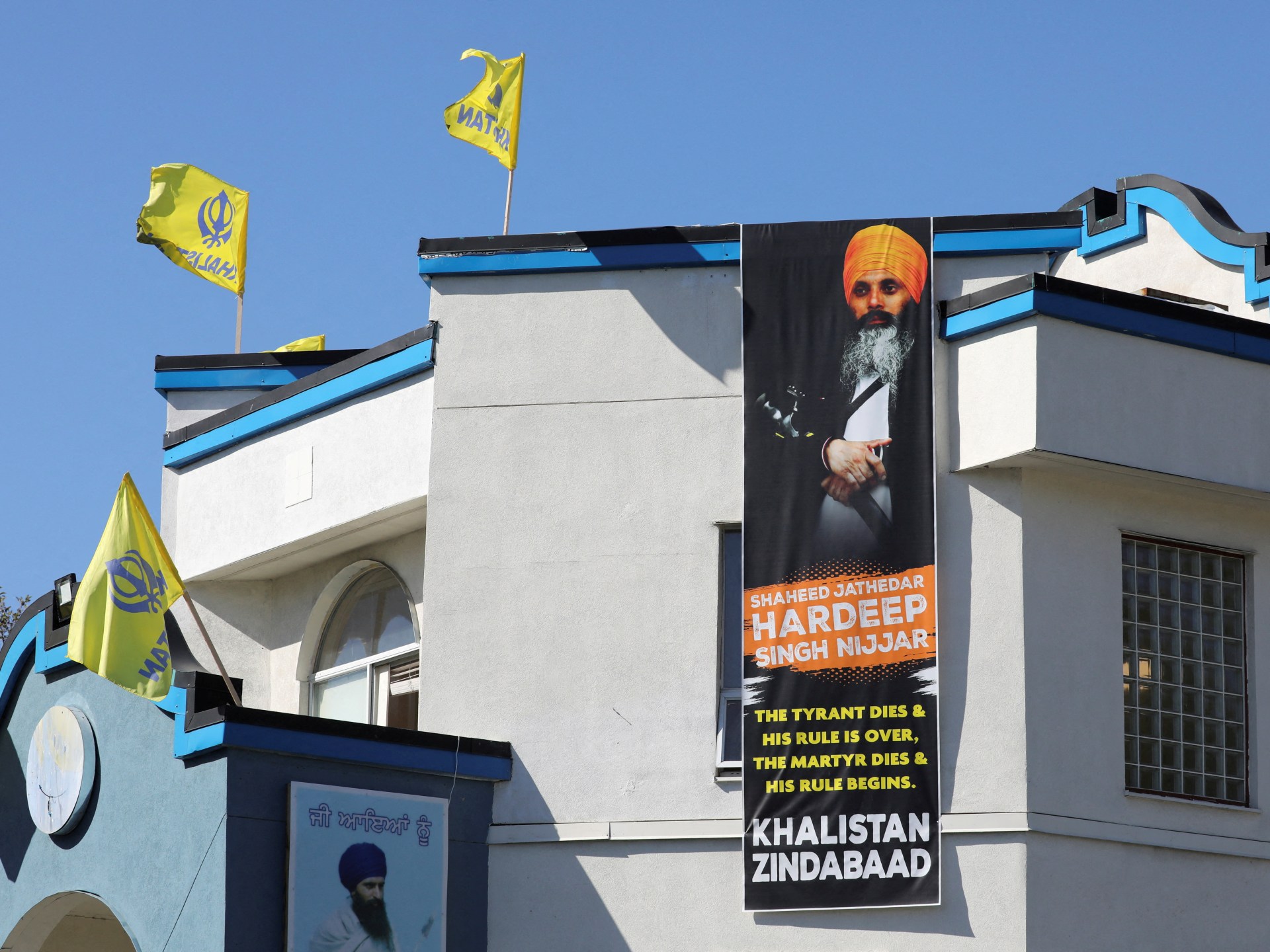India’s foreign ministry says it is concerned for safety of its citizens in Canada because of ‘politically condoned hate crimes and criminal violence’.
India has warned its citizens against visiting parts of Canada, the latest salvo in a diplomatic row over Ottawa’s allegations that New Delhi was involved in the killing of a Sikh separatist leader this year.
Canadian Prime Minister Justin Trudeau has demanded India treat with “utmost seriousness” the bombshell revelation of its probe into his shooting death.
The fallout prompted tit-for-tat diplomatic expulsions and a forceful denial from India, which said any suggestion it played a role in the June killing of Hardeep Singh Nijjar was “absurd”.
Without explicitly referring to the row, India’s foreign ministry on Wednesday said it was concerned for the safety of its citizens in Canada because of “politically condoned hate crimes and criminal violence”.
“Threats have particularly targeted Indian diplomats and sections of the Indian community who oppose the anti-India agenda,” a ministry statement said.
“Indian nationals are therefore advised to avoid travelling to regions and potential venues in Canada that have seen such incidents.”
Advisory for Indian Nationals and Indian Students in Canada:https://t.co/zboZDH83iw pic.twitter.com/7YjzKbZBIK
— Arindam Bagchi (@MEAIndia) September 20, 2023
Nijjar was shot dead by two masked assailants outside a Sikh place of worship he presided over in Surrey, an outer suburb of Vancouver in British Columbia province.
Nijjar supported creating a Sikh homeland in the form of an independent state of Khalistan in India’s northern state of Punjab, which borders Pakistan. It is the birthplace of the Sikh religion.
India designated him as a “terrorist” in 2020 and sought his arrest for an alleged conspiracy to commit murder. He had denied those charges, according to the World Sikh Organization of Canada.
The Indian government accuses Ottawa of turning a blind eye to the activities of hardline Sikh nationalists who advocate the creation of Khalistan.

‘Not looking to provoke’
Relations between Canada and India have been strained since the assassination of the Sikh leader and the demonstrations that followed in Canada.
Trudeau, who met with Modi on the sidelines of this month’s Group of 20 (G20) summit in New Delhi, on Tuesday said he expected India to properly consider the allegations over Nijjar’s killing.
“India needs to take this matter with the utmost seriousness,” he said. “We are doing that. We are not looking to provoke or escalate.”
The United States has joined Canada in calling for India to reveal what it knows about the slaying.
“We are deeply concerned about the allegations referenced by Prime Minister Trudeau,” National Security Council spokeswoman Adrienne Watson said in a statement.
“We remain in regular contact with our Canadian partners. It is critical that Canada’s investigation proceed, and the perpetrators be brought to justice.”
In a report published late on Tuesday, the Reuters news agency said Canada had worked “very closely” with the US on intelligence that Indian agents were potentially involved in Nijjar’s murder.
“We’ve been working with the US very closely, including on the public disclosure yesterday [Monday],” a senior Canadian government source told Reuters.
The evidence in Canada’s possession would be shared “in due course”, said the official, who spoke on the condition of anonymity due to the sensitivity of the information.
Canada’s Conservative opposition leader, Pierre Poilievre, has urged Trudeau to show the evidence that the government has in hand.
Jesse Singh, founder and chairman of the community group Sikhs of America, told an event hosted by Washington’s Hudson Institute think tank that Trudeau has failed to provide any proof.
“It’s just something that he said is a ‘credible allegation’ with no proof at all. And I think we’ll have to wait to see if there is any proof there, and then I think further decisions can be taken,” Singh said.
